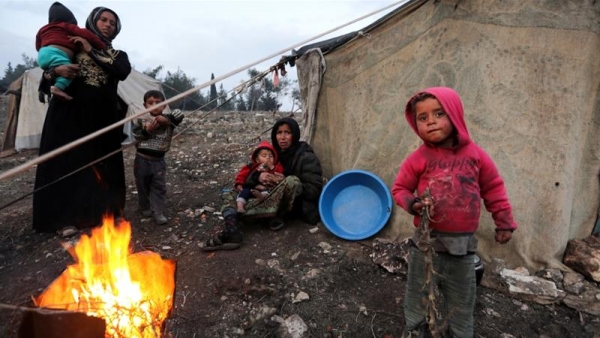The province of Idlib, in northwest Syria, represents one of the last strongholds of the rebel groups who have been trying to overturn Bashar al-Assad’s government since 2011. The war, which has been ongoing for nine years now, has seen the rebels, helped by Turkish forces, fighting against the Syrian army, supported by Russia. During these nine years, both sides have repeatedly committed war crimes and crimes against humanity, bombing civilian objectives, employing chemical weapons and carrying on indiscriminate attacks against civilians. According to the Syrian Non-Governmental Organization Hurras Network, 28 schools of the Idlib province were shelled in January and February 2020.
The unceasing bombings of the last years have forced over half of the country’s population to leave their homes. According to the United Nations Office for the Coordination of Humanitarian Affairs (OCHA), 2.7 million people of the four million living in northwest Syria are now internally displaced, and 80 percent of them are estimated to be women and children. These people are in urgent need of food, water, shelter and education. Through resolution 2504, in January 2020, the United Nations Security Council decided to extend until 10 July its authorization of cross-border aid delivery to Syria. The Syrian government and its allies, though, have consistently tried to hamper humanitarian aid delivery, blacklisting and persecuting humanitarian personnel.
Even though Russia and Turkey signed a ceasefire on 5 March 2020, agreeing to stop the bombings in the province of Idlib, the Syrian Observatory for Human Rights reported ceasefire violations from Assad’s regime and his allies in July 2020. The region’s catastrophic situation got even worse due to the COVID-19 pandemic, which made it difficult to carry on humanitarian aid: some activities ceased or had to be reduced in order to keep the humanitarian personnel, as well as local people, safe.
To read more, please visit:
https://www.msf.org/idlib-latest-chapter-war-syria
https://www.bbc.com/news/world-middle-east-51763926
https://www.syriahr.com/en/173525/
https://www.humanitarianresponse.info/en/operations/stima/idps-tracking
Author: Margherita Curti; Editor: Matteo Consiglio







